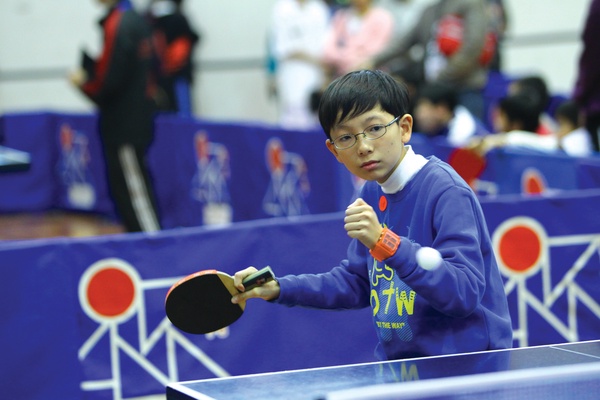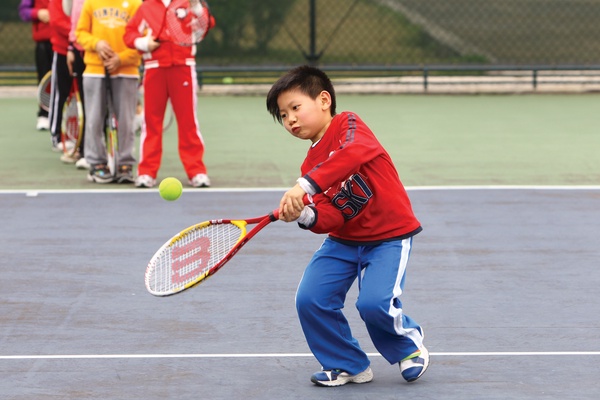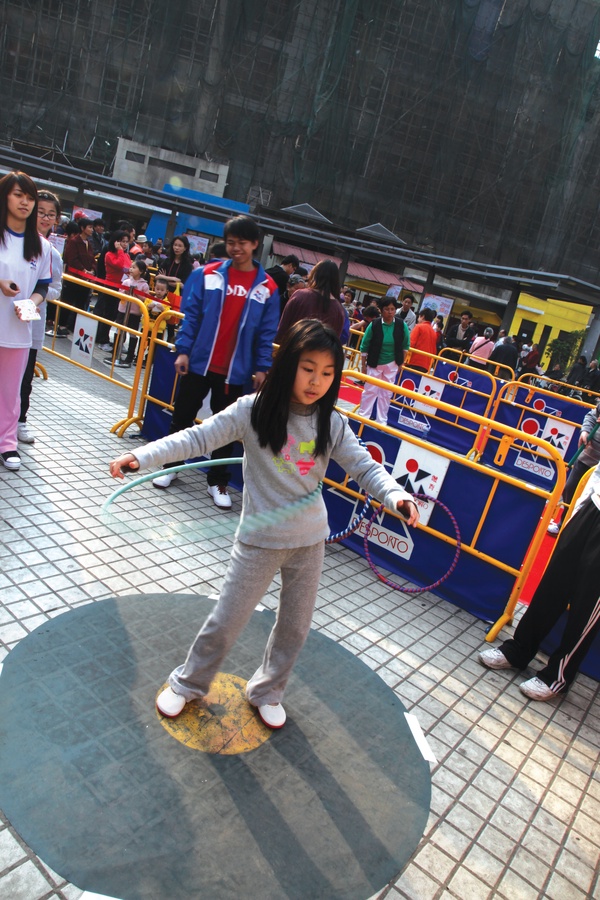Benefits of Sports to Children
Sports have positive effects on the development and strengthening of children’s and teenagers’ body. Survey results show that compared to those who seldom do exercises, teenagers who exercise regularly are on average 4 cm higher, 3 kg heavier, and have stronger cardiac function. Physical exercises can not only significantly improve children’s and teenagers’ blood supply to the bones, increasing bone mineral density, but can also enhance their muscular strength, enabling them to maintain a good posture and reducing chances of having problems such as hunchback and scoliosis.
For the increasingly serious problem of obesity among children in Macao, physical exercise is in fact an effective preventive and remedial measure. Doing aerobic exercise over a relatively long period of time helps reduce body fat, blood lipids and blood pressure levels. In addition, proper strength exercises can help those children and teenagers who are thin and weak to improve their muscular strength and increase their lean body mass. With an appetite whetted through sports, combining with a nutritional diet, their body can gradually become stronger.
Childhood obesity is a growing serious problem, which leads to an increase in children having chronic diseases such as high blood pressure and diabetes, affecting their physical and mental development. Obesity is caused by many different factors. Except the unchangeable hereditary factors, other causes include “lack of exercise” and “unhealthy diet”. Therefore, the best way to prevent obesity is to exercise more and control nutrient absorption. That is to say, parents should take the responsibility to help their children live a healthy lifestyle. For example, parents should: go walking or cycling with their children every week; arrange regular family outdoor activities such as hiking or trekking; distribute part of the household chores to children, such as vacuuming or sweeping floors; let children participate in activities they like, developing their interest in sports; limit children’s time watching TV and playing computer games, preventing them from sitting for long periods of time; make healthy eating a habit of the whole family, consume more fruits, vegetables and whole grain foods; replace high-fat foods with low-fat alternatives, such as lean meat and skinless chicken.
Exercise like cycling and playing ball with children can not only promote their health and make them happy, but can also improve the parent-child relationship during activities. Furthermore, a good health and sporting skills can help children build a positive self-image.





